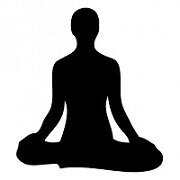How to break through writer’s block
JANUARY 16, 2015
You may know that electric feeling....you have an amazing new idea, it bubbles in your brain and heart. It settles in, you decide to write it down. You clutch your coffee or your wine or vitamin water and circle your writing desk.
Often, the circling widens. You suddenly see the tomatoes that have been ignored in the basket for days that could make a great tomato sauce. You tell yourself that will be a good reward for later, after you’re done writing. Only there’s no Parmesan cheese, you realize as you detour to the refrigerator—
Maybe a quick dash to the market makes sense to stock supplies for the upcoming writing marathon....so you won’t have to move from your laptop. Even with Amazon Pantry, you’d have to get up and bring the food in, you think to yourself as you head out for what turns into hours of gathering food for what could be a winter hibernation with stacks of energy bars and dark chocolate with almonds, rows of bottled caffeine for the morning and wine for the night, all organized which of course takes time now but will be worth it when the writing starts flowing—
You may know how that goes. I’m sure many of you have your own secret sauce for procrastination. I only make pasta sauce when I am start to avoid writing something. One time, I topped off my signature cooking binge with a frivolous cleaning frenzy because a dab of tomato sauce had landed on my old holey and I might add, always stained t-shirt.
Another time, I even got up on a stepladder on its last legs to drag down the dusty one-time-misused pasta making machine wedding gift which I totally appreciated but could not master...which led to a trip to Good Will after I collected other items beyond my skill-set to give away - fondue kits, high heeled shoes, make-up, etc.
But one thing I did not give away was my writing. Eventually, I ran out of obvious distractions and became annoyed by their offshoots. I retreated, focused, and finally started madly writing. This felt fluid, real, in the moment. But then, my ever-sidekick, the Editor in My Head character burst in, seduced me with substitute words, renamed characters, and moved structure around like Scrabble pieces.
You may also know the frustration. It goes with the territory, right? As writer Robert Benchley, famous for his New Yorker articles and also for his procrastination, phrased it:
“Sometimes, in the throes of creative work, I get out of bed in the morning, look at my writing desk piled high with old bills, old gloves, and empty ginger-ale bottles, and go right back to bed again...Even if I do get up, I can often think of nothing to do but pile the books which are on one end of my desk very neatly on the other end and then kick them one by one off to the floor with my free foot.”
At some point in the throes of my own creative procrastination and facing a deadline where I didn’t have time to re-read or go back, I discovered that laying words and ideas down quickly, not reading what I’d written until reaching ‘the end’, was not only something to do, but also productive. It’s how screenwriter John Hughes wrote at his peak, Paul Schrader described writing his first draft of the movie Taxi Driver, and Jack Kerouac literally penned his novel On the Road on a scroll of paper. As one screenwriter explained...you get to the end, then go back and go through it again, each time it goes quicker. And then, suddenly, it’s done, due and/or you’re so stuck to it/sick of it that you can’t let it go/have to.
Of course, not going back and re-reading/aka editing, but instead flowing forward requires mega-memory power, hyper-energy, insane will, and often a crazy-important deadline. Plus, it necessitates a writer staying in the moment, the gush/rush of an idea writing itself.
But what if you didn’t have to get all wired, almost fired, and beyond tired to get this result of really riffing in the writing zone? What if all it took was sitting around doing nothing for a few minutes?
Nothing except being present in the moment. Okay, maybe focusing on the breath. Possibly staying with sound. Or savoring a tiny taste of a chocolate almond.
“Simple but not easy,” meditation teachers often say of these mindfulness practices.
Maybe, but I have found that meditating before writing makes the creative process simpler, easier, and more unique. The editorial, self-questioning voices that paralyze my writing are similar to those assaulting my meditations and sabotaging my tapping into the moment - lists of what I should be doing,
doubts as to whether I am performing well enough, am I succeeding or do I just so fundamentally suck?
Mindfulness helps me acknowledge my self-critical distractions, embrace the present of momentary sensations, scents, feelings, inhales, and then exhale it into my writing.
As poet William Wordsworth wrote: “Fill your paper with the breathings of your heart.”




